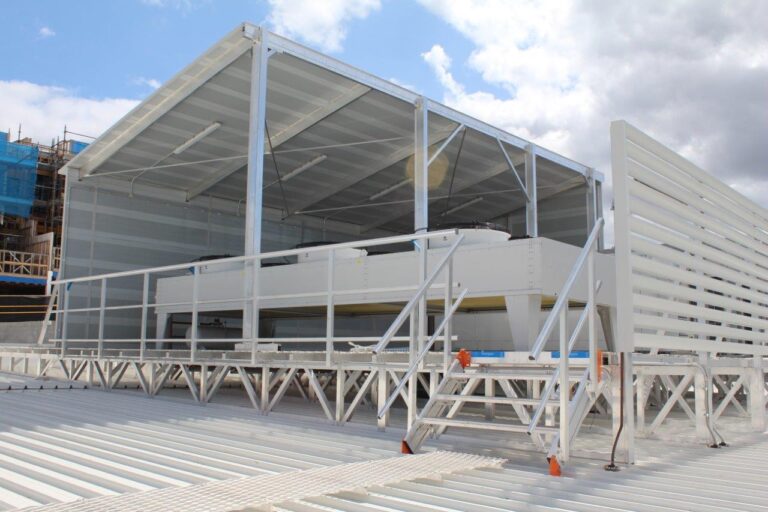The importance of noise control for worker safety in the Australian construction industry
Protecting employees from the harmful effects of construction noise Every day, construction workers face the possibility of many different hazards. Falls, injury from heavy machinery, and exposure to hazardous materials can all feature. Yet there’s one hazard that is often underestimated: excessive noise. Noise pollution is a significant issue on construction sites, and it poses…
Protecting employees from the harmful effects of construction noise
Every day, construction workers face the possibility of many different hazards. Falls, injury from heavy machinery, and exposure to hazardous materials can all feature. Yet there’s one hazard that is often underestimated: excessive noise.
Noise pollution is a significant issue on construction sites, and it poses significant risks to the health and safety of workers. It is required by law that employers limit worker exposure to noise levels no greater than 85 dB for more than 8 hours per day/shift, with no peak noise louder than 140 dB.
Construction noise can also disturb neighbouring residences and businesses; in fact, this affects around 400,000 people in Australia annually. That’s why, to avoid employee hearing damage and site shutdowns due to complaints, it’s important to prioritise noise control.
Here are three good reasons why noise control is essential in the Australian construction industry.
1) Excess noise causes NIHL and other health problems
Excessive noise levels are an inherent part of construction sites due to the operation of heavy machinery, power tools, and other equipment. Unfortunately, prolonged exposure to high noise levels can lead to serious health issues, including Noise-Induced Hearing Loss (NIHL), tinnitus, and other auditory disorders. These effects are often irreversible and can significantly impact a worker’s quality of life.
2) There is a legal obligation to implement noise control
Recognising the risks of noise exposure, the Australian government has implemented stringent regulations to protect workers. The Occupational Health and Safety (OHS) Act and the Noise Control Regulations set forth specific guidelines to manage and control workplace noise levels – including in the construction industry. Employers are legally obligated to implement noise control measures to ensure the safety and well-being of their employees.
3) Noise control creates a safer working environment
Excessive noise can lead to distractions, communication difficulties, reduced concentration, and increased stress levels among workers. These factors can contribute to errors, accidents, and decreased work efficiency. Employers can create a safer and more productive work environment by implementing effective noise control measures.
How to implement noise control in industrial workplaces
Fortunately, there are several proven ways employers can go about implementing the right noise control measures for their industrial workplaces:
-
Using engineering controls to reduce industrial noise
Engineering controls – such as modifying or replacing machinery, equipment, or processes to reduce noise emissions at their source – are the most effective way to prevent or minimise noise hazards in construction sites. Employers should prioritise investing in quieter machinery and equipment to safeguard workers’ hearing health.
-
Implementing administrative controls to manage noise exposure
In addition to engineering controls, administrative controls and are vital in managing noise exposure. Employers should implement measures such as job rotation, limiting exposure time, and creating designated quiet areas.
-
Issuing appropriate Personal Protective Equipment (PPE)
Providing workers with appropriate Personal Protective Equipment (PPE) and hearing protection, such as earplugs or earmuffs, is essential. Regular training and awareness programs should also be conducted to educate workers about the risks associated with noise exposure and the correct usage of protective equipment.
-
Carrying out regular noise assessments
To ensure their effectiveness, noise control measures must be regularly monitored and evaluated. Employers should conduct noise assessments and measurements to identify high-risk areas and determine the success of implemented controls.
Get advice on industrial noise control for your site
The construction industry in Australia faces many safety challenges – and noise control stands out as a crucial aspect that must not be overlooked.
By prioritising noise control measures, employers can protect their workers from the harmful effects of excessive noise, reduce the risk of hearing-related disorders, and enhance overall workplace safety and productivity.
Compliance with regulatory guidelines and the implementation of engineering controls, administrative measures, and personal protective equipment are key steps towards creating a safer work environment in the construction industry.
For expert advice on the right noise control solutions for your facility, please contact Flexshield at 1300 799 969
Related Stories
-

Noise control solutions for chillers – enhancing comfort and compliance
Effective strategies to manage and minimise rooftop chiller noise Rooftop chillers are essential for maintaining comfortable temperatures in large buildings. Yet their noise can often become a nuisance, for staff, customers, and the general public… -

Flexshield’s Sonic Acoustic Curtains deliver real results in New South Wales
Outcome shows the power of noise control solutions At Flexshield, we are committed to delivering high-quality noise control solutions that make a difference. Our hands-on approach includes visiting customer sites, observing our products in action,… -

Managing noise in large-scale projects with acoustic solutions
Strategies for improving industrial workspaces through noise control In industrial environments, noise control is a critical factor due to the substantial noise produced by machinery and operations. Effective noise control solutions are instrumental in ensuring…